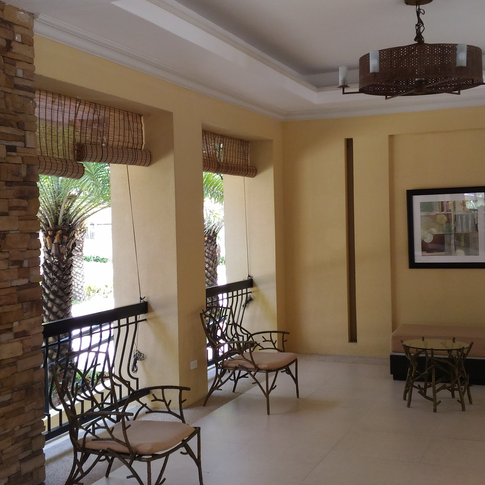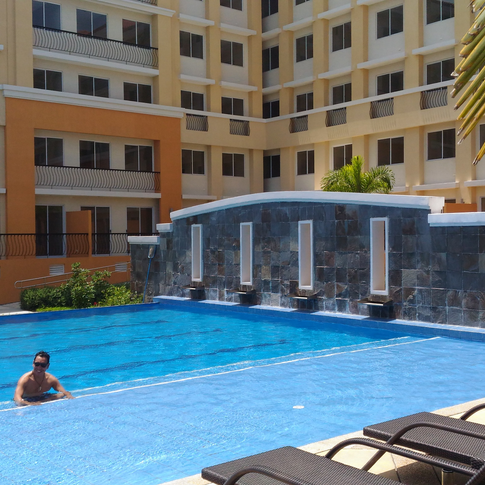Learning connection from the Philippines
- Valentina Poletti

- 6 apr 2017
- Tempo di lettura: 4 min
I already talked about the shadow sides of the Philippines - and how they gave me an opportunity to grow - in my last blogs. Today I want to talk about the positive aspects that I got in the Philippines and that I learned from.
The first is connection. After being back in Taiwan for four days, I started to realise I was missing something, something that I had in the Philippines. And that is the ability to talk to people. I'm not referring to language barriers - although I do not speak Chinese, most Taiwanese people do speak some English, however they are usually so concerned with making a good impression with their English speaking that as you are talking to them they get really nervous and concerned, and the conversation soon gets exhausting for them.
I'm also not talking about having regular people to talk to and connect to such as your friends and acquaintances that you keep in touch on a regular basis. What I mean is the ability to pretty much connect to anyone at all, at a deep, authentic and natural level. The Philippinos do not have a lot of the barriers to that that many other cultures have. For instance, in some cultures, people are very cold and skeptical at first, but as they get to know you they overly open up and pour their life at you (for instance, the Swiss). On the other hand, in some cultures, like Taiwan or some parts of the U.S., people are overly friendly and welcoming at first - but then there is a kind of wall beyond which the relationship doesn't go deeper, it just stops, as though you are only allowed to keep it at the surface level.
What I noticed in the Philippinos is that they have neither barrier. They are easygoing when they meet you first, and yet you can get as deep and authentic as you want with the conversation and getting to know them, without making them uncomfortable.
In many societies, you need to have an excuse to meet and connect to people. You need to be part of the same religious group, the same school, work place, or to have some kind of association or to be at some kind of event with them. You would not naturally connect to people otherwise. This can be exhausting, as to be able to talk to people you have to transport yourself to other locations, pay various costs to enter meetings/events etcetera. In the Philippines it is not so: you don't need an excuse to talk to anyone at all. You can strike deep conversations with the person living next door, with the guy waiting with you at the bust stop, with the clerk at the shop you buy, with the person down the block. It is very natural, very human, very easy going.
The second thing I loved about the Philippines is their manifestation of an ideal I have about intentional communities. When we talk about intentional communities, we often picture a place somewhere in the middle of no-where, with people living off-grid, creating their own food, electricity and so forth. Although that's one possible way of communal living, in my view it is very inpractical in today's world, and it is not the ideal scenario for everyone.
Instead I invisioned what I call 'integrated intentional communities' - these are communities that bring the advantages of communal living styles to areas that are part of today's world, such as existing urban areas, or rural areas. One example of this would be condo complexes with easy access common living and activity spaces, such as common living areas, kitchens, activity spaces and so on. Well, the Philippino got this idea exactly, and raised it one up.
I have some pictures here of two examples of such communal living spaces that I stayed in while living there. The first one is quite empty because it is newly build, but you can see the beauty and easy access of all the communal spaces. This one is in Cebu, outside the main city.
The second space is right in the middle of Metro Manila, near Makati. It is a condo complex with four common swimming pool areas, with tables and chairs to sit on and meet, a gym, a basketball court, many gardens, and even a few stores. You can tell by the people living there that it works beautifully. Children playing together, families getting together, moms with small children helping each other out, and elderly interacting with the young.
This is the opposite of the living situation in many parts of the current world, where people are isolated and alone. It creates a depressing and unhealthy system, where often the elderly are alone and without support, single unit families struggle to raise their children, and young people are alone too. This is unhealthy for everyone, whereas supporting each other out and sharing responsibilities and activities lifts a great burden on everyone's life, by meeting each other's needs. One could even envision for instance to have a child-care facitlity inside such condo complex, so families could live their children in the care - perhaps of the elderly living in the condo, while they go to work. In any case, the elderly participate in the community, the families can help each other out and everyone's benefitting.


















Commenti